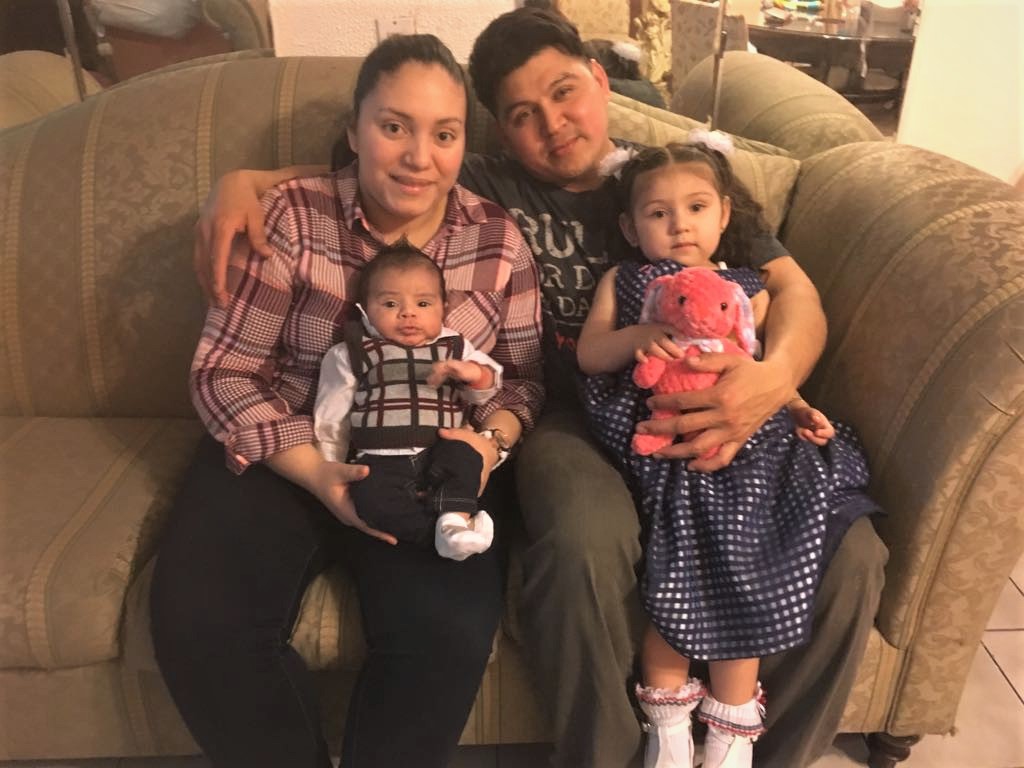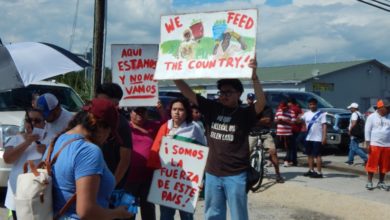
Antonio De Jesus Martinez, a 34-year-old Salvadoran, is the father of two small children and the sole breadwinner in his family. Currently a commercial air conditioning technician, he has worked and paid taxes since he came to the U.S. in 2003, fleeing death threats. In spite of all this, he was recently detained by Immigration and Customs Enforcement at a routine immigration hearing that he voluntarily attended with his lawyer. He currently sits in the Hudson County correctional facility in Kearny, N.J., awaiting deportation.
Antonio De Jesus Martinez is not alone. People like him are being seized and deported in cities and towns across the U.S.
ICE taking ‘anybody and everybody’
During his administration, Barack Obama deported more undocumented workers than any other president. As deplorable as this was, under Obama there were deportation guidelines—those with criminal records or deemed “threats,” or the newly arrived–that migrants and their advocates could anticipate and challenge. But just days into his administration, Donald Trump issued an executive order radically shifting ICE’s approach and granting ICE authority to arrest and detain any undocumented immigrant. This included people who pose no threat, and working people like Antonio, who have been in this country for decades and have firm family and community ties.
ICE has become a deportation machine raiding places of work, stalking immigrants at courts and even hospitals and schools, targeting working immigrant families. Detention of “non-criminals” jumped nearly 171 percent during Trump’s first year in office. ICE continues this sweep, despite a significant reduction in border crossings in 2017 compared to 2016.
This is a national phenomenon. According to Matt Adams, a lawyer with the Northwest Immigrant Rights Project in Seattle, to push up the deportation numbers, “ICE is taking anybody and everybody they can. It’s low-hanging fruit, whoever they can get. These are people who’ve been here for twenty or thirty years.”
Forced migration
I met Antonio’s wife, Vivian Martinez, during a vigil outside the Hudson County correctional facility for Pablo Villavicencio, another immigrant arbitrarily detained. Villavicencio is the pizza delivery man who was taken into ICE custody while delivering a pizza to an army base in Brooklyn, NY.
Vivian explained that last year, at the advice of an immigration lawyer, she and her husband submitted an I-130 petition showing Antoino had married her, a U.S. citizen. He was detained in April during his I-130 marriage interview in the presence of his lawyer.
Vivian told me Antonio’s story. Like many migrants from Central America, Antonio was forced to leave El Salvador to escape gang violence and imminent death. Starting in 2000, Antonio and his sister were extorted and threatened, often daily, by the local MS-13. Like many Salvadorans, they felt that their only recourse for survival was to migrate to the U.S., where their grandparents lived.
It has been well publicized in the U.S. that in recent decades the Northern Triangle (El Salvador, Honduras, and Guatemala) has become a hotbed of gang violence, corruption and drug trafficking. Entire families have been forced to look for asylum in Mexico or the U.S. in search of safety. What is rarely mentioned in the media and not well known is that these conditions are a direct result of decades of U.S. interventionist foreign policy in Latin America, and U.S. deportation policy.
Deplorable conditions at correctional facility
Antonio is being held at the Hudson County correctional facility where “conditions are deplorable,” said Vivian as her voice cracked and she paused to compose herself. She, her 2-year-old daughter and three-month old son can only see Antonio on Saturdays, the only day that “contact visitations” are allowed.
They drive from Queens, N.Y. to Kearny, N.J., and are permitted to see him for only half an hour each week. If someone else comes to visit with them that allotted time is equally divided, therefore only Vivian and her kids visit. “I can only kiss him when I greet him, but then I’m prohibited from touching him. I don’t know why they call it contact visitations if there is no contact,” said Vivian with frustration.
The prison conditions she described are not only deplorable but inhumane. The food “is meager and bland,” she said. “If detainees need medical assistance, they have to wait two to three days after writing their symptoms on a piece of paper before seeing a healthcare provider.”
Fatherless Father’s Day
As if detention wasn’t enough, Antonio has been arbitrarily denied parole. According to Vivian, the ICE parole officer claimed that there is no justifiable reason for his probation. “He has two young children, and he is the breadwinner in my household, if that’s not a justifiable reason, I don’t know what is,” Vivian said in exasperation.
Antonio was also denied a motion to reopen the deportation order, making it harder for Antonio’s family to appeal the deportation. Closing or denying a motion to reconsider deportation, a cruel and revolting tactic, has become common under the Trump administration.
The prospects for Antonio to go back home to his children and wife look dim. On June 17, Antonio’s children spent Father’s Day without their father.





